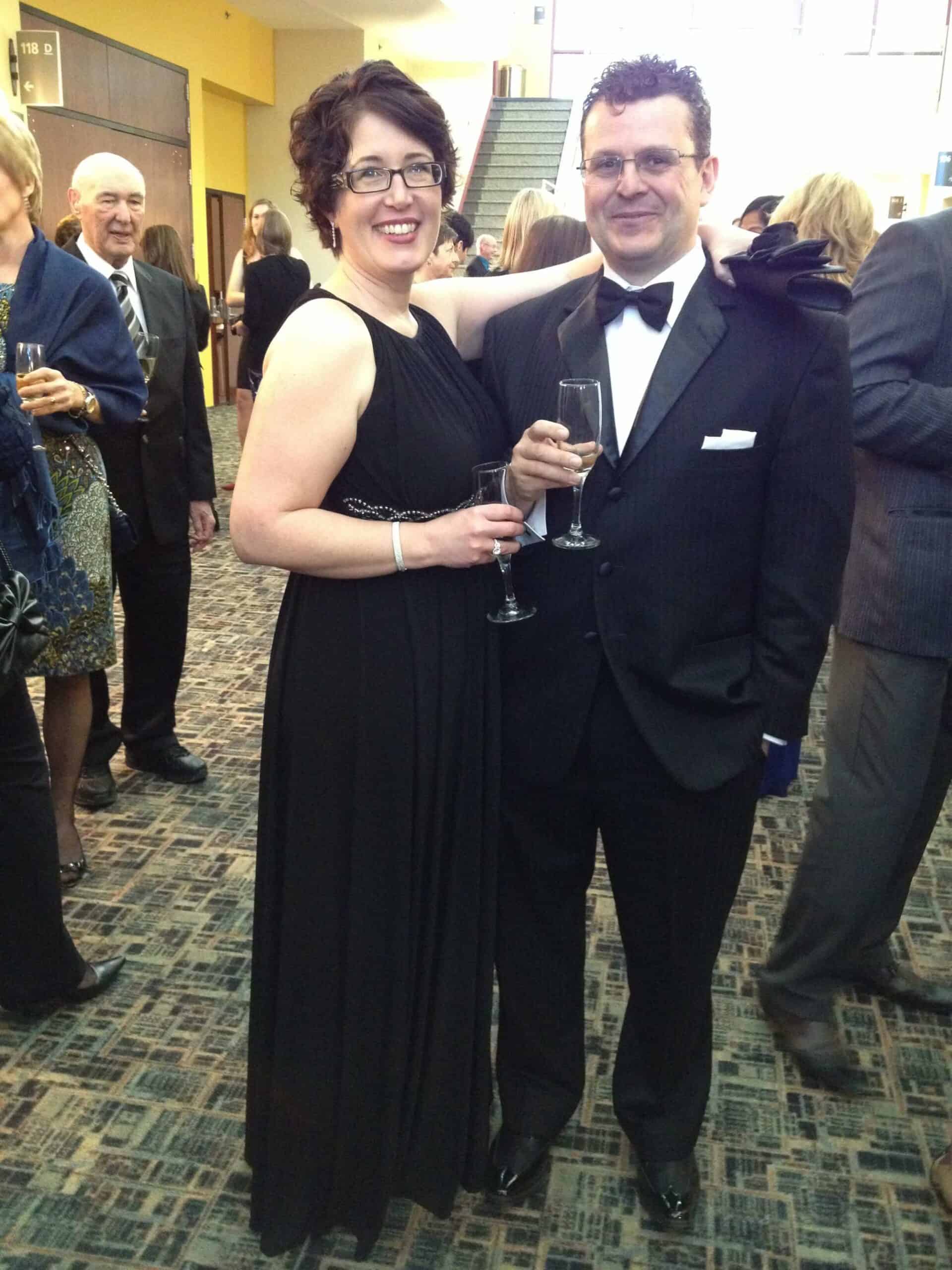Big 3 regrets as an entrepreneur
Regrets.
It’s my personal philosophy to live a life without regrets. Which makes it a challenge to share here that yes, I have a few.
Especially as it relates to the service business franchise system I ran for 20 years. I started from zero in a corner of my basement and built it to a 7-figure system with 5 locations in 3 cities. But even with all that success, I can reflect now and see a few things I wish I’d done differently. No matter where you are in your business journey, avoid these big 3 regrets as an entrepreneur.
1. Underpaying myself
Show me the money.
Clearly, people get into business to make money. And my business did make money. My big regret is that I didn’t put more of it into my own pocket.
Sure, pushing profits back into a business is a smart strategy for growth.
And yes, paying competitive wages is important for building a strong team.
But how many times did I budget year-end bonuses for my management staff and employees, but skipped out on paying myself?
Most years, in fact. And why?
There is no simple answer for that. Actually, there is. Basically a matter of where my money mindset was at the time.
The point is, looking back now this is a big regret. Which may be one of the reasons why as a business coach I always talk about personal financial goals with my clients.
2. Working too much

How much is working too much? This is very subjective. For some people, a 50-60 hour work week is normal. And they thrive with it.
For others, working more than 4 days a week is too much.
For me, my regret is that I worked a schedule that left me little time for my own physical and mental health. My own wellness was not a priority. In fact, it wasn’t even on the list.
At the time, I was proud of myself for a strong work-life balance. Mompreneur magazine profiled me as an example of someone who was doing it all – raising daughters and building a successful business. And sure, I had the flexibility to be there when the school bus arrived in the afternoons.
But I also had the flexibility to work on the weekends, and to work after my kids went to sleep, deep into the early hours of the morning.
Most of the time, my schedule was packed with working on the business, managing my household, and looking after my daughters. There was very little time to look after my own self-care. Or to look after my marriage. And ultimately, I lost out because of it. So working too much may be my biggest regret as an entrepreneur.
After all, having control over the schedule is one of the many benefits of owning your own business. So build a strong boundary between life and work, and schedule time AWAY from the business. This will not just improve the quality of your own life and health – it will also prevent burnout and improve your productivity for the time you do spend on your business.
2. Working too much

How much is working too much? This is very subjective. For some people, a 50-60 hour work week is normal. And they thrive with it.
For others, working more than 4 days a week is too much.
For me, my regret is that I worked a schedule that left me little time for my own physical and mental health. My own wellness was not a priority. In fact, it wasn’t even on the list.
At the time, I was proud of myself for a strong work-life balance. Mompreneur magazine profiled me as an example of someone who was doing it all – raising daughters and building a successful business. And sure, I had the flexibility to be there when the school bus arrived in the afternoons.
But I also had the flexibility to work on the weekends, and to work after my kids went to sleep, deep into the early hours of the morning.
Most of the time, my schedule was packed with working on the business, managing my household, and looking after my daughters. There was very little time to look after my own self-care. Or to look after my marriage. And ultimately, I lost out because of it. So working too much may be my biggest regret as an entrepreneur.
After all, having control over the schedule is one of the many benefits of owning your own business. So build a strong boundary between life and work, and schedule time AWAY from the business. This will not just improve the quality of your own life and health – it will also prevent burnout and improve your productivity for the time you do spend on your business.
3. Not working with a business coach
Yes, this seems obvious, and perhaps self-serving given that now I work as an entrepreneur coach. But it is BECAUSE of my experience as an entrepreneur that I’m so passionate about the value of coaching for small business owners.
I worked with a coach when I started my last business. I’d been in a cushy corporate job which sucked the soul out of me every time I entered that grey floor of stale cubicles. But building a new business felt overwhelming. On one hand, I had such a long list of action items that I didn’t know where to start. On the other hand, I was worried that I was missing something important.
Working with my business coach gave me structure and accountability. She validated my ideas. She gave me insight and advice which pushed my business forward by MONTHS. Her perspective and experience eliminated many operational and marketing mistakes which saved me time and money. The ROI was clear.
So why did I stop working with a business coach?
Maybe I felt that I’d learned enough from her. And that I could manage the rest on my own. Now, I see that a better choice would have been to find a coach that better fit for where me AND my business was at the time. Ongoing monthly coaching calls would have given me perspective and insight which could have prevented all sorts of hassles and issues in my business.
The irony is that if I had kept working with a business coach, I likely wouldn’t have the first 2 regrets. Because a good coach would have checked in that my personal financial goals were being met. And that I was taking the time to take care of me, not just my business and my children.
Guide for entrepreneurs to avoid regret
Each entrepreneur has their own individual set of goals and expectations for being in business. There is no one list that suits everyone. Use these big 3 regrets as an entrepreneur to inspire you to reflect on your values.
Overall, consider what you wanted to achieve when you first started your business. And not just lifestyle and income. Also think of how often you work, and what you spend your time working on. I recommend using the Vivid Vision process by Cameron Herold to develop a clear set of goals for what you want your business to feel like, look like, and act like.
Then, check in where you are now in your lifestyle, income, work schedule, and business. What doesn’t match up with that vivid vision? Use this to get clear about the gaps so you can make a list of changes to make.
Finally, when doing this review process, don’t dwell on any regrets that may come up. It’s easy to fall into that “should have” and “could have” thinking. However, what is past is past. Embrace the opportunity for change now. Remember the lesson of hagstones, and how small changes repeated over time have HUGE impact. Celebrate that you are being proactive now in doing the work to make your experience as an entrepreneur everything that you want it to be.
And of course, if you want structure and accountability to help you with this process, let’s connect to talk about it.
AVOID REGRET with this guide for entrepreneurs
Each entrepreneur has their own individual set of goals and expectations for being in business. There is no one list that suits everyone. Use these big 3 regrets as an entrepreneur to inspire you to reflect on your values.
Overall, consider what you wanted to achieve when you first started your business. And not just lifestyle and income. Also think of how often you work, and what you spend your time working on. I recommend using the Vivid Vision process by Cameron Herold to develop a clear set of goals for what you want your business to feel like, look like, and act like.
Then, check in where you are now in your lifestyle, income, work schedule, and business. What doesn’t match up with that vivid vision? Use this to get clear about the gaps so you can make a list of changes to make.
Finally, when doing this review process, don’t dwell on any regrets that may come up. It’s easy to fall into that “should have” and “could have” thinking. However, what is past is past. Embrace the opportunity for change now. Remember the lesson of hagstones, and how small changes repeated over time have HUGE impact. Celebrate that you are being proactive now in doing the work to make your experience as an entrepreneur everything that you want it to be.
And of course, if you want structure and accountability to help you with this process, let’s connect to talk about it.
Big 3 regrets as an entrepreneur Read More »






